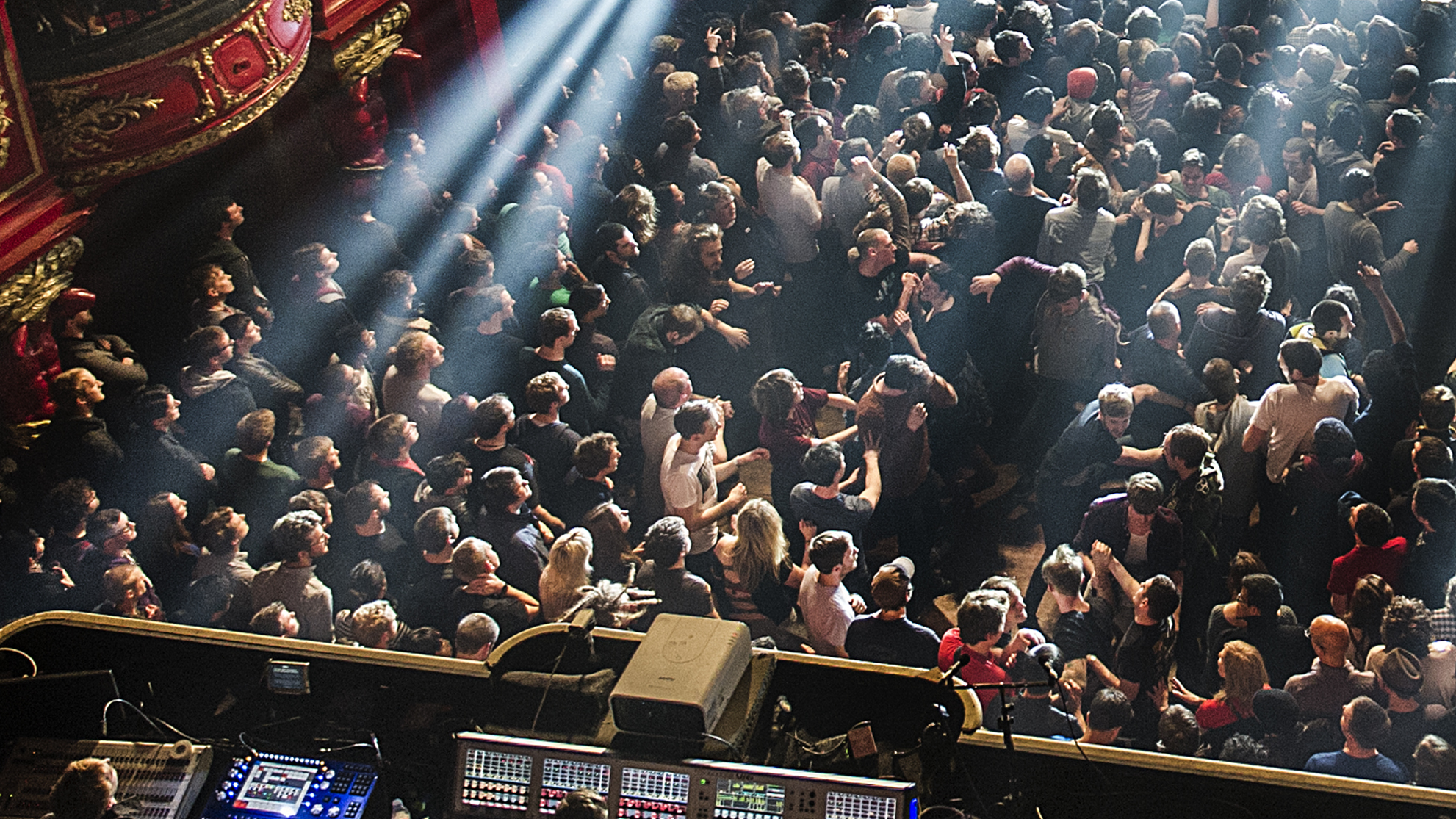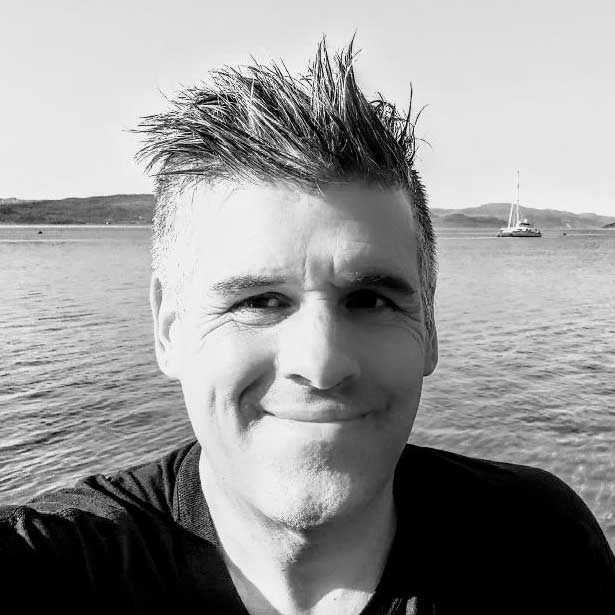Thunderously heavy and ambitiously complex, German instrumental prog metal quintet Long Distance Calling sound like the missing link between Led Zeppelin and Radiohead on their latest album, Trips. But enjoyment levels of this show would largely depend on how much you prefer the former over the latter, because the black-clad Münster combo mostly play to their simplistic rock beast side in Bristol.
They begin with Getaway, the opening track on their new album, which has a kind of rolling Krautrock groove that lays roaring guitars over pre-recorded synthesiser washes. Soon afterwards comes Momentum, also built around a pulsing electronic spine. In their studio versions, both tracks have more orchestration and streamlined melodic whoosh, with faint echoes of vintage Jean-Michel Jarre. But on stage, guitars and drums take primacy over strings and electronics, especially when Momentum switches gear from synth rock gallop to slow, punchy, grinding headbanger.
Tonight’s highlights include old favourites like Arecibo, which combines concussive riff slamming with ferociously intricate guitar shredding, and Invisible Giants, which shifts through multiple moods and movements with rugged physicality. And already shaping up to join them in the canon of live LDC classics is new song Trauma, which strips down to a martial post-thrash stomp powered by a clobbering metronomic backbeat from Janosch Rathmer.
Midway through the set, tour support and Trips guest vocalist Petter Carlsen joins LDC onstage for a three-song interlude. Although his default setting is mellow acoustic folk pop, the Swedish singer-songwriter seems to relish this chance to unleash his inner Ozzy, from the muscular Reconnect to the arena-sized nu-metal prog-out of Middleville.
LDC are masters of long tracks, but sometimes the live experience slips from enjoyment to endurance. Black Paper Planes kicks off with a powerhouse percussive slamdance before unwinding into endless variations on the same three-chord sequence, an exhilarating start that becomes an elongated trudge. Likewise, Metulsky Curse Revisited begins with choppy staccato riffs and machine-gun drumming, then trundles towards the horizon in an interminable loop of sludgy blues rock.
This is a robust show, but a little monochrome in places. On record, LDC have cosmic, electronic and orchestral dimensions, but these get lost in translation from studio to stage. Budgets may prohibit a more expansive live production, of course, but a little more variety in presentation and arrangement might help tease out the progressive depths of this kaleidoscopic music.

